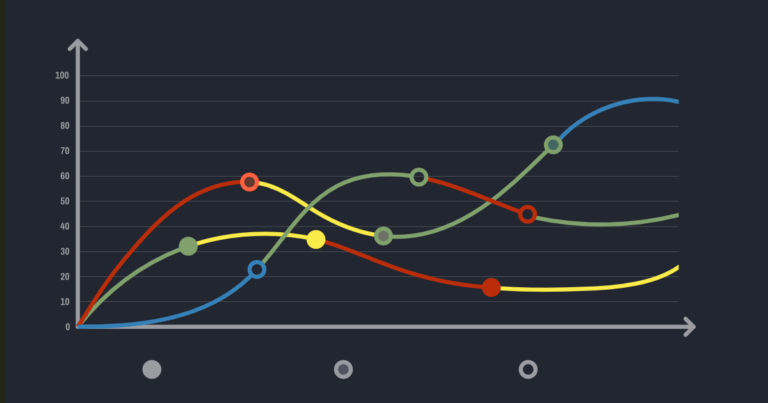How to find a business coach

Finding a good business coach is one of the most important investment decisions you will ever make for your growing company. You need the right coach with the right approach at the correct time for your business.
I want you to be able to find a good business coach, the best business coach for you and your company. You might end up working with me as your coach in one way or another, or there might be a different business coach out there for you. It’s entirely up to you, of course. But because I’ve worked with many small business owners who have picked up bad advice from the wrong business coach, I wanted to write this article to put you on the right track to finding the right person for you. I’ve benefitted so much from my discussions with various business coaches who have helped me with my different companies over the years, and I want you to find the right business coach for where you are and where you want your business to get to.
I know that this decision will be a big one for you.
In this article, I’ll take you through some of the reasons business owners search for a business coach to help you work out the best way forward. I’ll also offer some suggestions for other ways to think about coaching, including some more cost-effective solutions.
Guide to choosing the right business coach
First, it might be useful to hear a little about my story…
I’ve been around as a business coach for a long time now. In fact, I was probably one of the first business coaches in the UK. I remember researching what a business coach is, how it works in practice and what it costs way back in 2001, just after I’d moved to Brighton after a fairly dramatic exit from one of my companies.
Since I started in 2001, the business coaching industry has evolved and grown. There are a lot more business coaches out there. And to be honest, there are good coaches…and not-so-good coaches. That’s one of the reasons for writing this article.
Some of my best friends are business coaches. Some of the people who have worked for me in the past are now business coaches. Two of the virtual assistants I’ve worked with over the years are now specialist business coaches. And several of my clients have developed a business coaching element within their product ecosystem.
I’ve found and met a lot of business coaches through networking, where I often ask nosy questions about how they run their businesses, what they think about some of the challenges that business owners face and how they’ve learnt about the ins and outs of running a small business. I admit that I also spy on other coaches, picking apart their websites and reverse engineering how they work. Sometimes I learn lots from other business coaches’ blogs or videos. But sometimes, if you were a fly on the wall in my office, you’d hear me occasionally calling some coaches very bad names because I can see they are just no good.
How I’ve worked with coaches

As I’ve grown my own company, I’ve worked with numerous coaches myself. There have been three periods of time when I’ve worked intensively with a business coach when I’ve wanted the Joy of Business to evolve into something new. Not to mention numerous specialist coaches I’ve worked with to help me with content creation, search engine optimisation, strategic direction, and user experience. It took several people to help me get over my block of creating video content, but now I’m making weekly videos on my YouTube channel.
Let’s help you find the right business coach for you
Because I believe that finding a business coach is so important, I want to take you through the process of choosing a coach so you can be confident that this is the right business coach for you. For some people, business coaching isn’t the right approach, so I’ve also included other alternatives, including more affordable solutions.
Hold on, though…
Actually, maybe you don’t want a coach at all?
Most people, including my regular coaching clients, who I love, don’t actually want a business coach. They don’t want to be turning up for meetings, talking through their business challenges, and working on strategies and action plans. Who would?
What we small business owners actually want is…the results. I know I do. Let’s look at what people like us want from business coaching, so we can be sure that you make the right choices.
Reasons why companies grow faster with a business coach
You want your business to grow
This is probably the number one reason founders look for a business coach. You’ve got the business to a certain point, and it’s now doing okay. But you know that it could do more than okay. To get it to where you want it to be, you recognise that you need some help to find the missing magic.
I believe that working with a business coach is a fundamental part of growing your business. You can do this without a coach, but it will take you longer, and your journey will be more stressful.
Find a coach who has run a business before
Many business coaches, but not all, have run their own companies before getting into coaching. I strongly advise that you ensure that your coach has run a real business, not just their coaching company, before. It doesn’t matter whether they’ve worked in your industry before. In fact, it can be helpful if they don’t, as then they will have a fresh pair of eyes and be able to ask “naïve questions”. But the coaches who make me swear when I see them are the people who are ex-bank managers, have only worked in large companies or are actually life coaches who want to work with business owners, so they call themselves business coaches. IMHO, they’re not.
When you’re looking for a business coach, find someone who has run a small business before. Find a coach who has been through the challenges, the pain, and the whole experience of being responsible for scaling a business. Otherwise, they will not be able to share your pain or your joy.
Guide to choosing the right business coach
Gaps in your skills and knowledge
As well as working on developing the right strategy for the business, a lot of my conversations with clients go something like this:
Priya (coaching client) “Now we’ve got associates doing more of the client delivery work, I’ve noticed Paula is the most experienced one. She charges 450 a day. If she’s 450, is it okay to only pay the others 250 a day?”
Me “Yes. As long as you have a minimum amount you pay associates to make sure it’s fair to them, legally and morally, you don’t have to pay everyone the same.”
You can see how granular this is.
Most of the decisions we make as business owners are tiny little micro decisions. Some of these can turn out to affect the business in ways we don’t know about for the future – for example, if Priya in the example above had decided to pay all her associates 450 instead of 250, this softheartedness could have cost her (quick adding up here…200 extra per day x 5 associates x 20 days per year delivery per associate = 20k.)
Not only has that conversation added at least 20k to Priya’s net profit, but this is exactly the kind of decision that business owners get stuck on and can sometimes put off making a clear decision. Even though this example (a real one from a conversation this morning, with the names changed) is fairly simple, questions about fairness and how to treat people who work for you can be “sticky”. “Sticky” decisions are ones where you can get stuck, sometimes getting tied up in knots. And this stops you getting into action and moving forward.
You’ll see from my conversation with Priya that I’m not emotionally involved. I don’t know Paula or any of the other associates. And because I’ve worked with lots of other businesses where one strand of the growth strategy is to bring in associates to do at least some of the client delivery, I know what works well in practice when you’re building a business through developing a team of associates. Plus, many other growth strategies and tactics.
Why you need to find a business coach with the skills and knowledge you need to learn
No one teaches us how to run a business. We don’t learn this in school. I went through a whole MBA course before I realised that an MBA doesn’t teach you how to run a small business. I’ve read hundreds of business books, but they only make sense and add to your learning if you read them while you’re running a business.
The best way to learn about how to run a business is to build a business and take it through all the different stages of a business (starting up, growing, nearly going broke, fixing it, growing, pivoting, growing some more and then exiting). And ideally, rinsing and repeating this process. This might take you 10 years or more, and you’ll make tons of mistakes along the way, all of which will add to your learning.
The fastest way to learn how to run a business is to build a business with the help of an experienced business coach. Ideally, when that business coach has been through that process several times, preferably with their own money at stake.

Elaine, the client who wanted the business lessons in the same way as she was getting guitar lessons was absolutely right. You need to find a business coach who can feel what you’re doing, give you honest feedback, suggest some tweaks and challenge you to play the songs you might otherwise be scared to try. That way, you’ll learn fast and move forward fast.
When you’re unsure of the right strategy
Most of us blunder into our first business without thinking too much about the strategy. I certainly did. And my fourth and fifth businesses too. We find something we can sell, often a variant of what we’ve sold before or something that someone, somewhere, has asked us for, and we start selling it to people.
Most of my coaching clients have built their business to a certain point, but need help in working out the strategy and the tactics which are going to take them to the next stage.
Elaine had achieved a nice turnover and the first real profits, plus her first two members of staff, when she realised that he couldn’t see the strategy for taking the business to the next level. She knew that getting to a 5m turnover was more than just repeating what she’d done to get to 350k. She realised she had no idea what it took to get to the level where she could sell it and then start another business based on her true interests and passion.

It’s very difficult to work out the strategy for the next stage of growth on your own. And it’s even more challenging to be 100% sure this is right. Because the strategy you work out with your business coach is going to be much more comprehensive, rigorous and bulletproof. You’ve gone through a process together on it rather than just making it up yourself. Spending that discussion time, refining the strategy, and thinking through the different angles…you can only do this with another human being. I’ve needed my coaches to work through my strategic choices, and so will you.
Finding a business coach when your business is in trouble
Sometimes, even though you want to grow, your business has gone a bit weird. You might be experiencing cash flow problems, staffing issues, late payments from clients, or any number of the challenges we face as business owners.

This is definitely a time to get an external perspective from someone who has seen this before. And you need someone who can handle the numbers and go through your accounts to find out what’s going on. Do not assume that your accountant will help you with this. They may be able to, but my experience of most accountants is that they only want to be involved with the tax returns and compliance, no matter how much they claim to be “business advisors and accountants.” They simply do not have the “how can we fix this” mind set you need when your business is in difficulty.

There are two elements to the help you need from a business coach here. Firstly, you need support on an emotional level. Feeling that your business might be failing is a scary moment for anyone, and you need someone to be sympathetic and empathetic. When you’re looking for help to turn the business around, you need someone who can be calm and objective and, at the same time, provide the space you need to experience those emotions that are bound to be raging inside you.
Note – your problems might not be as severe as you think
I recently worked with a company where the turnover tanked in the last six months, and at the same time, eight of the ten staff left. The owners thought that they had enough cash in the bank to carry on for another 7 months. They were brave enough to come to me for help. I found an error in the cashflow forecast spreadsheet they were using and found that, in fact, the company was still profitable. Not in the same way it had been, but it wasn’t nearly as bad as they thought. And I could see the significant opportunities for growth that the owners had been too busy firefighting and worrying about the future to act on.
A sympathetic shoulder to cry on is not enough. You also need to find a business coach who can be your guide through this. Someone who can dive in, find out what’s causing the problems, and quickly generate an action plan to fix it.

When you want to pivot
Experienced entrepreneurs often want to pivot all or part of their business, creating something new from the old. Your market might have changed, your service has been made obsolete by AI, or a new competitor might be grabbing your customers. Or you’re simply bored and can see new opportunities for making money and having fun.
This is precisely the time when you need to find a business coach to help you through this process. You might need a coach to help you generate options for the future and move to a new business model. Or you might need help with the practicalities of the pivot itself, creating a new brand, finding product market fit, working out a new pricing strategy… You might effectively be creating a whole new business, and you can’t take it for granted that what brought you success in your previous incarnation will work now.
Business coach for start-ups
When you’re starting a new business, you will want to find a business coach to help you move the business forward quickly. Interestingly, many of my coaching clients already have one business but want help to set up another, or they’re serial entrepreneurs who have sold a couple of businesses before moving on to the next one. Even entrepreneurs with significant business experience still want to find a business coach to help them when they’re starting up a new company because they know that the right coach will help them go faster and make more money.
If this is your first business, these more experienced founders are setting a great example. They’ve been through this, and they know that getting a business going on your own is not easy. Having a business coach on your side at the beginning makes it more likely that your new start-up will move faster.
Of course, when you’re starting a new company, you’re very often cautious about how you want to invest your cash. I often talk to start ups who are 12-18 months in, and I wish that they’d talked to me, even just for a one-off strategy session, at the beginning. We could have avoided some of the most common business mistakes and got going faster.
Finding a business coach to help sell or exit your company
At the stage of your company when you’re getting ready to move on from your business, either by selling it to someone else or by training someone else to run it for you, there are lots of new challenges. And new challenges are best faced with a trusted advisor, someone who has been through this before.
Finding a business coach to help you exit is especially important. If you’re planning to sell, the advice you get from your coach now can drastically affect how much money you walk away with. I advise you to spend at least 18 months getting the company ready for sale if you want to maximise the sales price.
This happened to me the other day when a coaching client from a couple of years ago got in touch. Andrew had been very clear in our work together that he wanted to grow the business quickly and then sell it to one of his larger competitors. We worked on the factors that would give him the best sales valuation (in his case, recurring income from clients, clear legal contracts, systems and processes for delegation.) At the same time, I helped him build better marketing (he was being horribly ripped off by some SEO cowboys) and recruit new people. After about 10 months, Andrew didn’t need me any more.
He got in touch to ask if a 20k fee was appropriate to pay to a broker to help him sell the company for 2.4m, if Andrew had arranged the deal himself. I told him it was a rip-off and introduced him to the nice folk at Ducks in a Row, who specialise in getting companies ready to sell and helping with the deals.
Some of my most interesting coaching work comes at exactly this stage – helping business owners to build recurring income and embed their learning into the systems and processes of the company so it no longer needs them to be hands-on. And often, I’ll be working with the founder and a new manager who is going to be taking over.
Business coaches with the experience to work at this more complex level are more rare, and you definitely want to find a coach who has been through this, preferably with their own business, so they know what it feels like. At the very least, you should be looking for a business coach who has helped a number of other founders to exit, either at board level as a non-executive director or as a business coach.
Let’s find the right business coach for your company
You have options and choices at this point. You might want to work with a business coach on a one-to-one basis, or you can work with a coach in different ways. Or, if you’re looking for someone you can bounce ideas off, gain from their experience and (perhaps most importantly) someone to give you the accountability you need to get things done, there are other ways of doing this with or without a business coach.
Choice 1 – One-to-one business coaching

If you want more out of this relationship than an inspiring chat now and again, you need to find a business coach with a deep understanding of your business challenges.
One-to-one business coaching works best when you can call your coach outside of meetings when you have a key decision to make or to share a moment of triumph when something goes well. And when your coach challenges you in just the right way to move past your comfort zone.
Choice 2 – work with a coach in a group or programme
Some people will choose a group or coaching programme because it’s a lot more cost effective. You get access to a coach for a fraction of what it would cost to work with them on a one-to-one basis, but you can still get support, ask questions and gain from their knowledge and experience. Often this means that you can work with a high-end coach who you couldn’t otherwise afford to work with.
To be honest, this is the option I would choose if I were looking for a business coach today. I’d find a coaching group, programme or facilitated mastermind with someone I respect, plus where the people in the group would be at a similar “season” of their business journey. When I’ve been part of these business coaching programmes, either as a participant or as the facilitator, I’ve noticed that people often come because of the coach, but what they get is more because of the interaction between the group members, who end up coaching each other.
I currently run one coaching programme, Productise Your Expertise, specifically for people who want to build a product-based business, plus Product Lift-Off!, a learning and accountability group for people who want to get into action with their marketing.
Choice 3 – work with one of the big coaching franchises
When you’re looking for a business coach, you’ll find a number of coaches who are affiliated with one of the big coaching franchise companies, such as Action Coach, Pendleton Business Growth, Strategic Coach, The Alternative Board and many more across the world.
These companies have recruited and trained many business coaches who work according to the company’s methodology. The coaches are usually self-employed, or they’ve paid 50k or so to be part of the franchise. There are many good coaches working for these companies.
I must admit to a little bit of bias here because this is not my style of coaching or preferred way of doing business. But this is my guide to finding a business coach, so I’ve got my “being objective” hat firmly on.
Some entrepreneurs love these business coaching companies and get great coaching from them. And some of my best business coach friends have come through this route. They’ve gone through the training, worked under that banner for a few years and then got free of the restrictions of the franchise and now work under their own brand.
What’s good about the big business coach companies?
Most of these companies have built up a lot of great intellectual property, models and ways of thinking about running a company. And they have good training on how to handle the discussions you need to have with a client.
The big coaching companies make the process of finding a business coach easy for business owners. You just sign up, say what you’re looking for and they match you with a coach. Sometimes, this is a business coach near you; most often, nowadays, it’s for online coaching.
These companies have a solid process and access to a lot of learning. Because they have a network of coaches, theoretically, if your coach doesn’t know the answer to a query, they should be able to find out from someone else.
What’s not so good?
Having talked to clients and coaches who have been through these companies, it seems that there is always a set process to take a client through. That makes sense for the franchising parent company; they’re teaching all of their coaches how to go through a process and charging a lot of money along the way.
However, for me, this isn’t how coaching works best. The process of coaching is rarely linear. We don’t go through information gathering, strategy development and implementation in a straight line. Human beings need to take time to go back and forth on the big strategic choices they need to make for their companies before committing to a clear plan of action. Business doesn’t work like this either. Unfortunately, you don’t just get to make a choice to apply strategy number 23b; get into action and apply it. The world of business is much more complex than some of these models imply.

Pale, male, stale?
I also have a bit of a problem with the supply of coaches from some of these companies. I’m sure all these guys are very clever and experienced business people, but why are they all middle-aged, white, male and middle-class? They all look the same. That worries me because entrepreneurs and business owners are not all from this kind of background, and it would be good to feel that there are all kinds of different life experiences going into coaching.
Choice 4 – DIY business coaching options
And at the end of all of this, my last suggestion is that maybe you don’t need to find a business coach at all. Maybe what you need is to surround yourself with other people who are at a similar stage of business, season of life and appetite for growth and find a way to build your own coaching group.
There are a few ways to do this, depending on what you want to achieve.
DIY Business Coaching Options

Accountability partners

Co-coaching group

Mastermind group

Study groups

Launch groups
Your next steps to find a business coach
From this article, you should now have the right information to know what you want from a business coach and how to find the right person for you. Or what you need to do instead of working with a coach to get the same results.
You have options for the next steps. You can…
- Check out one-to-one business coaching with me, and we can get together to talk more about if I’m the right person to help you
- Find out more about the courses and programmes I run for people who want to stop trading time for money and pivot to products instead
- Make a short list of potential coaches from your online search and use the downloadable Guide to Choosing a Business Coach (see below) to see which coaches have the right balance for you
- Consider whether one of the big coaching companies is a good fit for you
- Decide if you want to go for one-to-one coaching or for a mastermind or co-coaching group
- Think about if your best option is to find your own mastermind or accountability partner group
